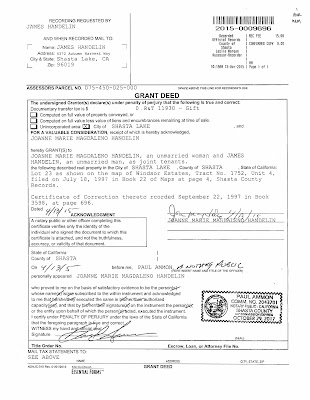"Five days before her death in 2015, Joanne Magdaleno transferred title to certain real property (the property) from herself to her ex-husband James Handelin and herself as joint tenants. In 2020, Magdaleno's daughter Andrea Wood, in her capacity as administrator of the estate, filed a petition under Probate Code section 850 for an order declaring the property an asset of the estate and for damages against Handelin, asserting among other things that Magdaleno had lacked the mental capacity to sign the deed and that Handelin had engaged in fraud and undue influence. The probate court ultimately sustained Handelin's demurrer to a first amended petition without leave to amend, concluding that Wood's claims were time-barred."
"The first amended petition alleged the following: Magdaleno divorced Handelin in 2014. Handelin signed a quitclaim deed as to the property the same year. In 2015, Magdaleno was hospitalized for three weeks with pneumonia. She was under heavy medication. Five days before she died, on April 13, 2015, she signed a deed granting to Handelin and herself title to the property as joint tenants. Magdaleno did not have mental capacity to understand what she was doing when she signed the deed. Handelin had the deed prepared, and he unduly influenced Magdaleno to sign it. He made false representations to Magdaleno to induce her to sign the deed. Magdaleno's signature on the deed was partial and the name on the deed was not the name restored to her upon her divorce. Wood did not discover the existence of the deed until after March 31, 2017."
On appeal, the appellate court held that Ms. Wood should have had the opportunity to amend her petition and reversed the trial court's ruling.
Wood v. Handelin, Shasta County Superior Court case # 30146










